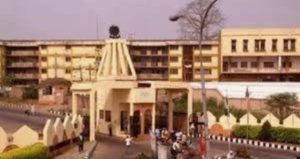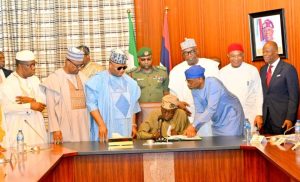
Is there any oil-producing clan in Nigeria more tragically betrayed than Agwa?
Nestled in the Oguta Local Government Area of Imo State, Agwa is not just rich in crude oil; it is the food basket of Imo, a land that once sustained the state’s agricultural pride. Today, however, Agwa lies abandoned, soaked in blood and pain, ravaged by insecurity, stripped of dignity, and suffocating under the weight of official neglect. It stands as a shameful paradox—a community producing wealth for Nigeria, yet languishing in darkness, underdevelopment, and fear.
A State Government’s Deafening Silence
Despite its strategic economic importance, the Imo State Government has turned a blind eye to Agwa’s suffering. For decades, promises have echoed across campaign rallies and political gatherings, but these promises have long since rotted on the vine of inaction. Critical infrastructure such as electricity, motorable roads, and water supply is non-existent. Public schools are crumbling. Health centres are in shambles. The only thing that thrives in Agwa today is despair.
The people of Agwa are asking: Why must an oil-producing community live like this?
Sterling Global Resources: Prosperity for Whom?
Sterling Global Resources, the major oil company operating in Agwa, has failed to live up to even the most basic expectations of corporate social responsibility (CSR). Beyond the extraction of black gold from the community’s soil, the company has left nothing but footprints of negligence.
In education, Sterling Global Resources has made no substantial investment. No classroom blocks. No scholarships. No support for teachers. In healthcare, no medical outreach, no hospitals, and no health insurance support for vulnerable residents. Women and youth—traditionally the anchors of rural development—have been completely abandoned. No business grants. No skills acquisition programmes. No empowerment initiatives. Not even the symbolic donation of books, sanitary pads, or tools for local farmers.
Their silence in the face of community cries is not only deafening—it is insulting.
When Legislators Forget Their Mandate
Worse still, those elected to defend Agwa’s interests in the National Assembly appear to have turned their backs.
Hon. Eugene Okechukwu Dibiagwu, the representative of Ohaji-Egbema/Oguta/Oru-West Federal Constituency, has failed to speak for the people of Agwa on the floor of the House despite his commendable efforts in other communities. Agwa remains landlocked in the court of conscience. His silence is a betrayal. The roads are impassable. The schools are empty. The hospitals are ghosts. Yet, the representative remains unperturbed.
Senator Osita Izunaso, who represents Imo West, is no better. Agwa cries, and the distinguished senator looks away. The people wonder: What does it take to be seen? Yet, Isunaso, demeaned our humanity and betrayed the various conscience of a clan who not only supported him, but paid him a courtesy visit during the electioneering campaigns with a gift donated in good faith.
When the Storms Came, and No One Did.
Between April and May 2025, while much of Imo State was focused on politics and power, a silent war was being fought in Agwa—not by insurgents, but by nature itself. The very sky above turned against the people.
It began with a thunderstorm of brutal intensity. In Uzii Obudi, two young women were struck down in the prime of life. Others sustained grave injuries, some of which may leave them maimed for life. Families cried. Communities gathered in shock. But what followed next was even more devastating.
A windstorm, described by survivors as “hurricane-like,” tore through Agwa, flattening more than 200 buildings across the clan. Roofs were ripped from homes. Market stalls were scattered like leaves. Schools, churches, and homes crumbled. Entire families were rendered homeless overnight, with mothers clutching babies under makeshift shelters of zinc and raffia. The disaster has not just displaced people—it has displaced hope.
And yet, through it all, not a single official from Imo State Government, Oguta Local Government Council, the State House of Assembly, or any federal representative has set foot in Agwa. Not one.
The Commissioner for Environment stayed away.
The Commissioner for Niger Delta Affairs ignored it.
The National Emergency Management Agency (NEMA) kept silent.
The Niger Delta Development Commission (NDDC)—the agency meant to uplift oil-bearing communities—turned a blind eye.
Not even a condolence message, not a single relief material, not a gesture of empathy was extended. In other climes, such disasters warrant immediate action. In Agwa, they warrant silence.
Fulani Bandits and the Collapse of Agriculture
Once a robust agrarian community, Agwa’s farmlands now lie fallow. Fulani bandits have unleashed violence and terror on farmers, making it impossible to access the fields. Our parents have abandoned their hoes and machetes. Cassava, yam, maize, vegetables—all are vanishing from our markets and tables.
Without food and without oil wealth reaching them, the people of Agwa are caught in a brutal triangle of hunger, fear, and poverty.
The Agwa clan, a once-thriving community, has been torn into shreds and a blood-soaked battlefield. Farms have been deserted. Families have fled ancestral homes. A husband and wife were recently murdered, in what locals describe as an “ambush of terror.” Others were kidnapped. Women have been raped. Children have been orphaned. Agwa is fast becoming a slaughterhouse in the shadows.
Livelihoods have collapsed. Traditional farming is now a risk to life. Youths who once laboured in palm groves and cassava fields now roam aimlessly or flee to the cities. Parents sleep with one eye open. And each passing week brings new atrocities—stories too horrific for the headlines.
On June 5, 2025, following a spate of killings, Agwa Central Union (ACU) conducted a bush combing security exercise around Agwa bushes and adjoining neighboring bushes with the approval of the Commissioner of Police, CP Danjuma Aboki. That exercise was quickly followed by the Commissioner of Police attending another security meeting on June 10, 2025, convened at the instance of the House of Assembly Member Hon. Gilbert Chiedozie Nwosu at the Council Headquarters under the chairmanship of Hon. Ifeanyi Nnani.
Following a strongly worded “position paper” by the ACU led by Barr. Benson Akunya Esq, the National President-General, delivered by Comr. Deacon Johnbosco Chimokwu Obodo JP, the National Secretary-General who pricked the CP, promised that emotions were high. Yet, nothing concrete has followed to date. The killings continue. No joint task force. No surveillance equipment. No patrol bases. No emergency intervention funds. Just more “talk shops”—as Agwa people now mockingly call government meetings.
The question now on everyone’s lips is: How long will this cycle of neglect, blood, and silence continue?
Roads to Ruin: The Lifelines that Became Death Traps
Agwa’s road network reads like a tragedy in itself:
Agwa-Ejemekwuru Road
Agwa-Okwo-Obibi through Umuekpu Road
Agwa-Izombe through Ubah Road
Agwa-Egbema through Obudi Road
Agwa-Amakohia Ubi through Obeakuma Road
Agwa-Egbema through Mgbala Road
Agwa-Amafor through Umukpo Road
Agwa-Mgbolo through Umuomi Road
Each of these roads connecting to Mbaitolu, Ohaji-Egbema, and Owerri-West LGAs is a death trap—choked with potholes, swallowed by erosion, and completely impassable during the rainy season. These roads are not just inconveniences; they are economic arteries. Their deterioration has crippled the flow of goods and services, buried agricultural commerce, and isolated the people from emergency healthcare and educational opportunities.
A Cry for Humanity – Is Agwa Not Part of Imo State?
The heart-wrenching question from the lips of every indigene is:
“Is Agwa not part of Imo State?”
Are its children not citizens? Is it not Nigerian oil? Are they dead not worthy of mourning?
From disaster victims sleeping in the open, to mothers mourning raped daughters, to farmers who can no longer till their land—the people of Agwa have endured every form of affliction imaginable. What remains is the deepest wound of all: government abandonment.
We speak often of “good governance”, but what is good about a government that cannot bury its dead, protect its living, or rebuild what has been destroyed?
We speak of “representation”, but what is represention when our lawmakers stay silent while their people perish?
We speak of “development”, but how does development reach a land without roads, hospitals, security, or empathy?
Every journey is a risk. Every rainy season is a nightmare.
Oil Should Not Be a Curse
Agwa produces oil, but lives in darkness.
Agwa feeds the state, but starves for attention.
Agwa cries out, but the government is deaf.
This is not just a call to action—it is a moral emergency. If the Governor of Imo State, the Niger Delta ministers, the House of Representatives member, and the Senator representing Imo West still lay any claim to their conscience, they must act now.
Visit Agwa. Mourn with Agwa. Rebuild Agwa. Protect Agwa. Empower Agwa.
Oil should not be a curse. It should be a covenant of prosperity, security, and respect.
A Call to Conscience
Agwa is not asking for luxury. The community demands basic rights: security, roads, schools, hospitals, electricity, and dignity.
Let the Imo State Government rise to its responsibility. Let Sterling Global Resources honour its corporate obligations. Let our lawmakers earn their mandates. Let the cries of Agwa no longer be met with silence.
Injustice anywhere is a threat to justice everywhere. Today it is Agwa. Tomorrow, it could be your community.
The oil in Agwa flows into national coffers, yet her children sit in darkness. If this is not a moral failure, what is?
Let the record show: Agwa will not be silent. And history will remember those who turned away in her hour of need. Every concerned actor in this piece has a burden of history to act positively; this is the ideal of service in the spirit of John Locke’s “Social Contract!”.
By John Mbonu Uchenwoke-Ekperechi, Publisher and Editor-in-Chief Inside Agwa Newspaper.


